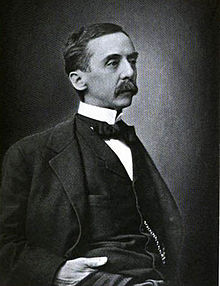Edward Echols | |
|---|---|
 | |
| President pro tempore of the Senate of Virginia | |
| In office January 8, 1908 – December 19, 1914 | |
| Preceded by | Henry T. Wickham |
| Succeeded by | C. Harding Walker |
| Member of the Virginia Senate from the 9th district | |
| In office January 10, 1906 – December 19, 1914 | |
| Preceded by | John N. Opie |
| Succeeded by | William H. Landes |
| In office December 4, 1889 – December 1, 1897 | |
| Preceded by | Absalom Koiner |
| Succeeded by | John N. Opie |
| 18th Lieutenant Governor of Virginia | |
| In office January 1, 1898 – January 1, 1902 | |
| Governor | James Hoge Tyler |
| Preceded by | Robert Craig Kent |
| Succeeded by | Joseph Edward Willard |
| Member of the Virginia House of Delegates for Augusta and Staunton City | |
| In office December 5, 1883 – December 4, 1889 | |
| Preceded by | J. Marshall Hanger |
| Succeeded by | George M. Cochran Jr. |
| Personal details | |
| Born | September 2, 1849 Union, Virginia, U.S. |
| Died | December 19, 1914 (aged 65) Staunton, Virginia, U.S. |
| Political party | Democratic |
| Spouse | Margaret Young Echols |
| Parent |
|
| Education | |
| Profession | Attorney |
| Signature | |
Edward Echols (September 2, 1849 – December 19, 1914) was a U.S. political figure from the Commonwealth of Virginia.[1] Echols held office as the 18th Lieutenant Governor of Virginia from 1898 to 1902.
Edward Echols was born in Monroe County (now in West Virginia). There is some confusion over his birth year, but he is listed in the 1850 census as being one year old in September 1850. He and his family moved to Staunton, Virginia, after the Civil War. He also served for six years in the Virginia House of Delegates and for a total of twelve years in the Senate of Virginia. His father, John Echols, was a brigadier general in the Confederate Army during the American Civil War. Echols served as the National Valley Bank's third president from 1905 to 1915.[2]
His house at Staunton, known as Oakdene, was added to the National Register of Historic Places in 1982.[3]
Sources[edit]
- ^ Moore, Craig. "Edward Echols (1849–1914)". Encyclopedia Virginia/Dictionary of Virginia Biography. Retrieved March 11, 2015.
- ^ William T. Frazier (November 1978). "National Register of Historic Places Inventory/Nomination: National Valley Bank" (PDF). Virginia Department of Historic Resources.
- ^ "National Register Information System". National Register of Historic Places. National Park Service. July 9, 2010.
- Richmond Evening Journal. December 19, 1914.
- Lyon Gardiner Tyler (1906). Men of Mark in Virginia. Men of Mark Pub. Co. p. 111.
Edward Echols Virginia.
External links[edit]
